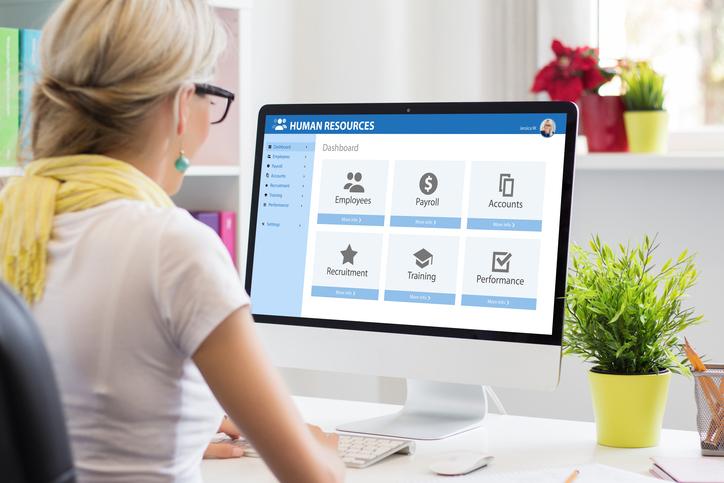Human resources departments play a vital role in any organisation, ensuring staffing practices are legally compliant and supporting the day-to-day relationships of employees and managers, alongside carrying out operational processes.
But how do staff get the most out of working with HR? How can staff ensure all the touch points they have with HR within their employee lifecycle are efficient, transparent and the best experience they can be?
- Pathways to prosperity in casual academia
- Key knowledge to be a good manager in higher education
- Senior fellowship: three tips that will help your application
Fact or fiction? HR love creating long-winded complex processes around anything they can
The cliché is that HR like to make processes more complicated. This really isn’t true – although, to a customer of HR, administration can seem long-winded at times. Given that it can feel as if volumes of data are needed for HR to process seemingly simple transactional changes, you might want to ask: “What does HR do with all that information?” The data we require will always be for at least one of the following reasons:
- statutory reporting and requirements outside the university (to comply with financial, statutory or Home Office requirements, for example)
- performance and equality monitoring (EDI, staff satisfaction, staff performance)
- contractual/pay data (so we can pay staff correctly)
- university policy or governance.
For staff, having an understanding (or at least an awareness) of all these things, particularly university policies, will make for a smoother HR interaction. If in doubt, reach out to HR and we can provide support and explanation.
Help HR with the right information to support your query
When an HR officer might have to deal with anything from a query about leave entitlement to how to raise a grievance, extend a fixed-term contract or request data, they need a vast breadth of knowledge to support staff.
So providing HR with as much information as possible to support your query can allow us to resolve issues as quickly as possible and therefore save you time. Information such as employee numbers, post IDs, job reference numbers, dates, user IDs or even names are all helpful details that can often be omitted from the simplest of queries. These lead to delays to what could be quick resolutions.
Using HR systems
Staff who engage with and use online and self-service tools can benefit from the most transparent and efficient HR experience.
Yes, complex HR processes require sophisticated systems to support them, and this can initially seem daunting or time-consuming. From the start of the employee journey, online systems – which include job requisitioning, online applications, interview scheduling, offers, onboarding, talent pools and redeployment – can guide managers and staff through these processes.
Self-service tools can allow transactional HR work to be carried out quickly and efficiently. HR systems can give staff online tools to initiate tasks such as employee changes, accessing and managing their data and using automated workflows and approvals. If everyone understands and plays their part using these systems in a timely way, staff, managers and HR can benefit massively.
Getting comfortable with these systems can often be a challenge. First, always try to make use of online user guides or learning materials; failing that, contact your HR or IT support teams. HR staff can talk you through using their systems and help you use them fully.
Feedback from staff can help HR improve their systems
HR appreciate that employees and managers are not living and breathing the same HR processes day in and day out; they have their day jobs to get on with, too. However, an HR process should be able to be followed and understood with relative ease. Where this is not the case, HR need to know. It may be that better support materials can be provided, websites updated or systems improved, and staff can be trained. Whatever the possible outcome, unless HR know there is an issue, we can’t make things better.
Offer feedback via your HR business partner, through raising a ticket with HR or through correspondence with your recruitment or employee relations contact. They can make sure the information is passed on to the right people, who can then take action.
Example of successful working: an online promotions process
Many universities recognise academic promotions as an example of a process that can be manually intense for all those involved. It often involves manual passing of applications between panels and collecting feedback from various sources and can lack transparency for participants (never mind the applicants themselves).
At the University of Southampton, the Reward and Recognition team and HR Systems, working with academic and support staff across the university, have designed and implemented an online solution to dramatically improve this notoriously tricky process. Deliverables include:
- a system that enables academic staff to make promotion and pathway movement applications online
- workflow applications to line managers that allow them to provide feedback on applications
- workflow applications to the relevant school panels for review
- facility to collect head-of-school feedback on all applications
- facility that enables applicants to respond to feedback
- workflow applications and feedback to the relevant faculty review panels, by grade applied for
- ability to seek and capture online references
- facility to easily create university executive board panel packs for outcome ratification
- a way to provide applicants with access to a consolidated copy of their application, including all the feedback, at the end of the process.
Last year, we received 304 online applications from staff. Bringing the process online meant that all panel members could review applications and respond online. The process involved no paper or emailing around applications; it offered automated workflow, improved data security, automated data archiving, and easy access for each person to play their part in the process when they need to.
Lisa Smith is senior manager in HR Systems at the University of Southampton.
If you would like advice and insight from academics and university staff delivered direct to your inbox each week, sign up for the Campus newsletter.




comment